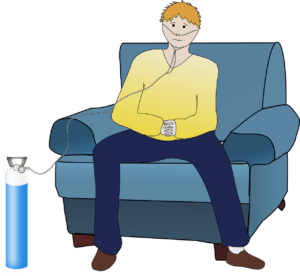Pulmonary Embolism is a medical term that refers to the blockage of an artery in the lungs.
The blockage is usually caused by a substance that has moved from somewhere else in a person’s body through the bloodstream.

Pulmonary Embolism Symptoms
Not all who experience pulmonary embolisms have the same signs and symptoms. It varies depending on the person and their health condition. However, these are the most common symptoms that you should take note of:
- Very sharp chest pains that feels like stabbing
- Shortness of breath
- Dry cough
- Coughing up blood
- Sweating
- Anxiety or apprehension
- Passing out
If any of these symptoms occur, you should seek medical attention immediately. Usually, these symptoms occur in those who recently had a swollen or painful arm or leg.
Causes of Pulmonary Embolism
So, what causes pulmonary embolism? There are a lot of different factors, but it usually blood clots that break loose and travel to the lung are the main cause. Blood clots happen because of different reasons. These include:
- Long travel period (muscles falling asleep)
- Immobilization
- Trauma or injury to the legs
- Recent surgery
- Heart diseases
- Obesity
- Burns
- Pregnancy
- Previous history of blood clot in the legs
- Cancer or chemotherapy
- Estrogen therapy or oral contraceptives
If you or someone you know experiences sharp chest pains, it is imperative to seek emergency medical help as soon as possible.
Once you’re in the emergency room, your doctor will need to conduct a series of tests if you are experiencing pulmonary embolism. Usually, patients will be placed on a heart monitor and will be on fluids or IV.
Pulmonary Embolism Treatments
Below are some of the treatments your doctor may recommend. Not everyone will get the same treatment. Much depends on their current health status.
- Patients will be put on oxygen to help them breath more easily
- Blood-thinning medication may be given to the patient, especially if they are experiencing severe symptoms
- Patients may be given thrombolytics or clot buster medications, especially if the patient is critically ill
- Some patients may be required to undergo a radiologic surgery if their pulmonary embolism is life-threatening.







